A dumb question but I couldn't get why it does not work. I have a DB with several tables. I can map it manually
Earnings = Table ('Earnings', metadata, autoload=True, autoload_with=engine)
or automatically using a loop.
tablenames = inspect(engine).get_table_names()
for tabname in tablenames:
tabname = Table (tabname, metadata, autoload=True, autoload_with=engine)
I can use this code to see the mapped tables :
for tab in metadata.tables:
print (tab)
...
>>> Earnings
...
So far, no problem.
The question is that if try use the automatically mapped tables, it does not locate it.
Lista_colunas = Earnings.columns.items()
for col in Lista_colunas:
print (col)
---------------------------------------------------------------------------
NameError Traceback (most recent call last)
c:\Users\fabio\Banco do Brasil S.A\DINED Parcerias Digitais - General\Python\Amazon\SQLA_Access_Test.ipynb Cell 13' in <cell line: 1>()
----> 1 Lista_colunas = Earnings.columns.items()
2 for col in Lista_colunas:
3 print (col)
NameError: name 'Earnings' is not defined
I realized that the auto mode is not creating the variables with the 'tabnames', but why not?
Somehow, VSCODE identifies that the 'Earnings' is a table objetc (see the picture), but does not let me call for it.
